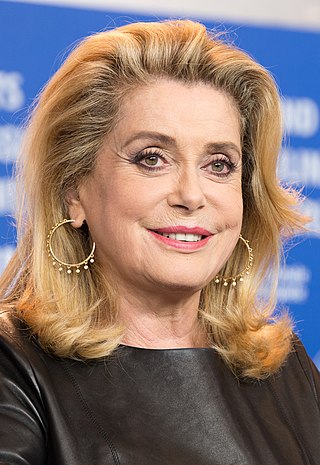
Catherine Fabienne Dorléac, known professionally as Catherine Deneuve, is a French actress, producer, and model. She is considered one of the greatest European actresses on film. Early in her career, she gained acclaim for her portrayals of aloof and mysterious beauties for well-known directors, including Luis Buñuel, François Truffaut, Jacques Demy, Roman Polanski, and Agnès Varda. In 1985, she succeeded Mireille Mathieu as the official face of Marianne, France's national symbol of liberty.

Marcello Vincenzo Domenico Mastroianni was an Italian film actor, regarded as one of his country's most iconic male performers of the 20th century. He played leading roles for many of Italy's top directors in a career spanning 147 films between 1939 and 1997, and garnered many international honours including 2 BAFTA Awards, 2 Best Actor awards at the Venice and Cannes film festivals, 2 Golden Globes, and 3 Academy Award nominations.

Pedro Machado Abrunhosa is a Portuguese singer, songwriter, musician and composer. Trained in jazz music, Abrunhosa started his career in the 1980s playing in jazz bands and teaching in music and art schools in Porto. He is a co-founder of the Jazz School of Porto.
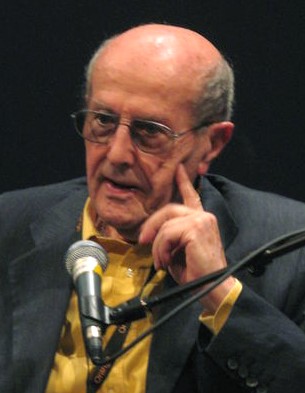
Manoel Cândido Pinto de Oliveira was a Portuguese film director and screenwriter born in Cedofeita, Porto. He first began making films in 1927, when he and some friends attempted to make a film about World War I. In 1931, he completed his first film Douro, Faina Fluvial, a documentary about his home city Porto made in the city-symphony genre. He made his feature film debut in 1942 with Aniki-Bóbó and continued to make shorts and documentaries for the next 30 years, gaining a minimal amount of recognition without being considered a major world film director.
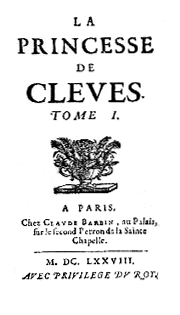
La Princesse de Clèves is a French novel which was published anonymously in March 1678. It was regarded by many as the beginning of the modern tradition of the psychological novel and a classic work. Its author is generally held to be Madame de La Fayette.

Chiara Charlotte Mastroianni is a French actress and singer. She is the daughter of actors Marcello Mastroianni and Catherine Deneuve.

Christophe Honoré is a French writer and film and theatre director.
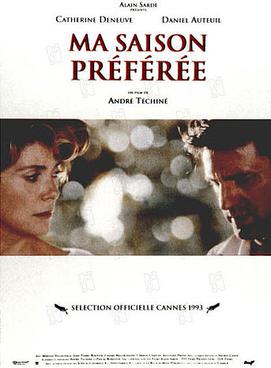
My Favorite Season is a 1993 French drama film directed by André Téchiné, co-written by Téchiné and Pascal Bonitzer, and starring Catherine Deneuve, Daniel Auteuil, and Marthe Villalonga. The story concerns a middle-aged brother and sister who resume their fragile relationship when they are forced to care for their ailing mother. It won Best Foreign Language Film at the 1996 Boston Society of Film Critics Awards.

Don't Forget You're Going to Die is a 1995 French drama film directed, co-written by and starring Xavier Beauvois.
No, or the Vain Glory of Command is a 1990 Portuguese film directed by Manoel de Oliveira. The film, starring Luís Miguel Cintra and Miguel Guilherme, depicts a series of defeats from the entire military history of Portugal – the assassination of Viriathus, the Battle of Toro, the failed attempt of Iberian Union under Afonso of Portugal and Isabella of Spain and the Battle of Alcácer Quibir – and the Lusiads episode of the Island of love, which are told through flashbacks as a professorish Portuguese lieutenant recounts them while marching through a Portuguese African overseas territory in 1974, during the Portuguese Colonial War (1961–74). He easily draws his comrades into philosophical musings, while the little contingent suffers surprise attacks by groups of independentist guerrillas.

Gabriela is a 1983 Brazilian romance film directed by Bruno Barreto. It was shot in the cities of Paraty, in the state of Rio de Janeiro, and in Garopaba, Santa Catarina. It is based on Brazilian author Jorge Amado's 1958 book Gabriela, Clove and Cinnamon.
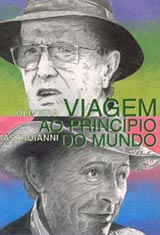
Voyage to the Beginning of the World is a 1997 Portuguese-French drama film directed by Manoel de Oliveira and starring Marcello Mastroianni. The film was selected as the Portuguese entry for the Best Foreign Language Film at the 70th Academy Awards, but was not accepted as a nominee. It was Mastroianni's final film.

The Cannibals is a 1988 Portuguese drama film directed by Manoel de Oliveira. It was entered into the 1988 Cannes Film Festival. The film was selected as the Portuguese entry for the Best Foreign Language Film at the 62nd Academy Awards, but was not accepted as a nominee.

Marcello Mastroianni: I Remember is a 1997 Italian documentary film about the actor Marcello Mastroianni and directed by Anna Maria Tatò. It was screened in the Un Certain Regard section at the 1997 Cannes Film Festival.
Anxiety is a 1998 Portuguese drama film directed by Manoel de Oliveira. It was screened out of competition at the 1998 Cannes Film Festival. The film was selected as the Portuguese entry for the Best Foreign Language Film at the 71st Academy Awards, but was not accepted as a nominee.
The Uncertainty Principle is a 2002 Portuguese drama film directed by Manoel de Oliveira. It was entered into the 2002 Cannes Film Festival.

The Strange Case of Angelica is a 2010 Portuguese drama film directed by Manoel de Oliveira. It was entered into the Un Certain Regard section of the 2010 Cannes Film Festival. De Oliveira conceived the idea for the film in 1946 and initially wrote the script in 1952, updating it with modern elements.

The Beautiful Person is a 2008 French teen comedy-drama film directed by Christophe Honoré from a screenplay he co-wrote with Gilles Taurand. It is a modernised adaptation of the 1678 French novel La Princesse de Clèves. Honoré was inspired to make the film after then-French president Nicolas Sarkozy repeatedly criticised the book as irrelevant in regard to modern life.

Beloved is a 2011 French romantic drama film written and directed by Christophe Honoré, starring Chiara Mastroianni, Catherine Deneuve, Ludivine Sagnier, Louis Garrel, Radivoje Bukvic, Paul Schneider, and Michel Delpech. The story is set in the 1960s through the 2000s in Paris, Reims, Montreal, Prague and London. While not a musical, the characters use musical 'narration' and 'dialogues' throughout the film.

Leonor da Silveira Moreno e Lemos Gomes is a Portuguese film actress who made her film debut in The Cannibals for director Manoel de Oliveira in 1988. She appeared in most of Oliveira's subsequent films. She is better known simply as Leonor Silveira.

















